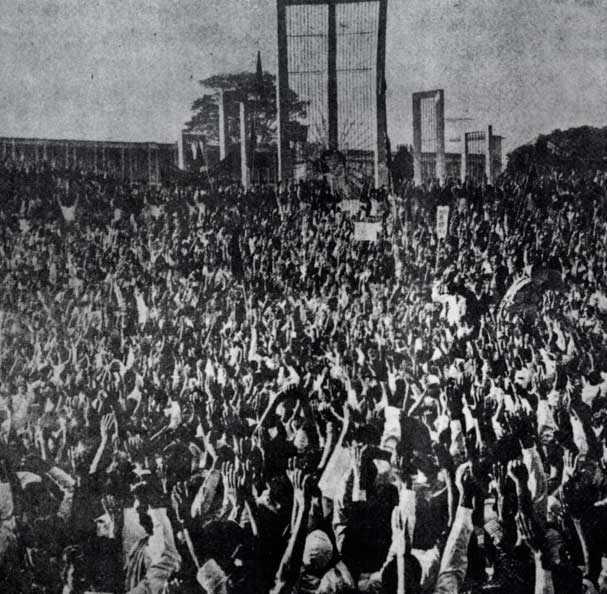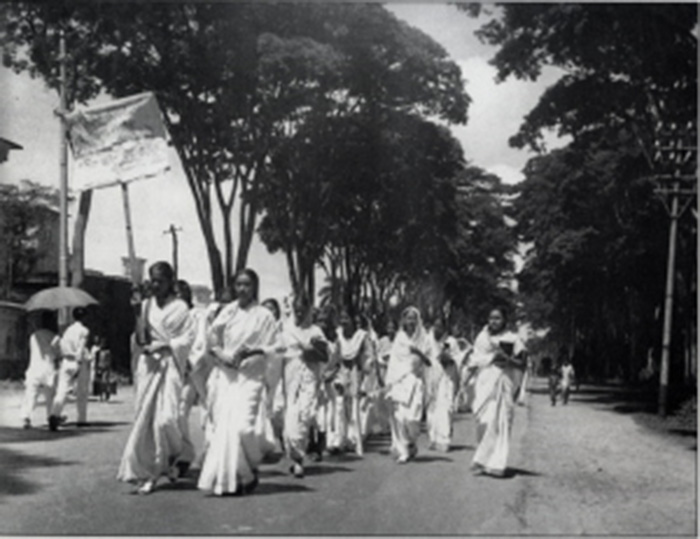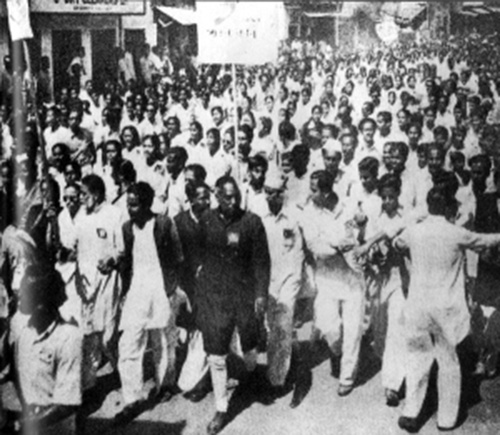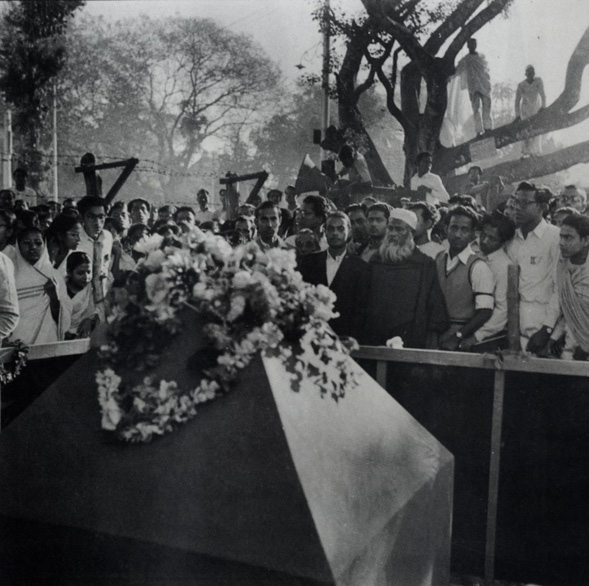 English
English

The Language Movement was a political and cultural movement in Bangladesh centered around the recognition of Bengali language as the official language of Pakistan and a broader reaffirmation of the ethno-national consciousness of the Bengali people on February 21, 1952.

Dhaka (Bangladesh): As the world celebrates International Mother Language Day it would be right to say that this day holds much more significance to Bangladesh, which will today pay homage to its language movement heroes.
When Pakistan was formed by the partition of India in 1947, it was composed of various ethnic and linguistic groups, with the geographically non-contiguous East Pakistan (now Bangladesh) having a mainly Bengali population.

In 1948, the Pakistani Government declared Urdu as the sole national language, sparking extensive protests among the Bengali-speaking majority of East Pakistan.
On February 21 in 1952, students and people took to the streets in Dhaka to protest government's refusal to recognise Bangla as one of the state languages and imposition of Urdu as the only official language.

Following the movement, the Pakistani government was ultimately compelled to include an article in the country's constitution on February 29, 1956 that declared, "The state languages of Pakistan shall be Urdu and Bengali."
Also read: Women empowerment in Jammu and Kashmir
On this day every year thousands gather at the Central Shaheed Minar to pay their respect to the language martyrs and lay wreaths.

An article in the Dhaka Tribune states that this day was the writing on the wall that Pakistan missed as the events of February 21 in 1952 galvanised an entire nation to demand Bangla as one of the state languages and that movement eventually gave birth to Bangladesh from the ashes of East Pakistan.
The movement over the demand gained momentum after the government forces opened fire on the February 21 rally in 1952, killing many demonstrators and, spreading the agitation across the East Pakistan.
Also read: Pak army chief discuss defense relationship
The article adds that at a time when the country was in flux, Abul Fazal became the voice of calm rebellion and his quote that says: "The meaning of 21st is to never bow your head down" is drawn up on the walls near the Shaheed Minar to remind people the kind of courage it took during those days to stand up against autocratic rule.
There are of others who guided the country with their leadership such as Bangabandu Sheikh Mujibur Rahman and Dhirendranath Dutta whose words adorn the wall with their political speeches about how Bangla should be our state language.

These words were recited to inspire people during the long road to freedom - a movement that Pakistan had deemed as a peasant uprising.
Meanwhile, in the early hours of Tuesday, Bangladesh President Abdul Hamid and Prime Minister Sheikh Hasina led the nation in paying tributes by placing wreaths at Central Shaheed Minar to pay homage to the language movement heroes. (With ANI Inputs)